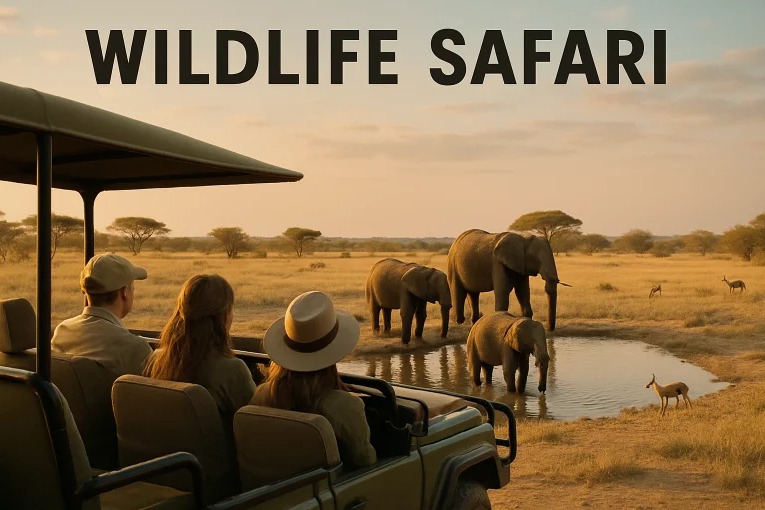Slow travel encourages a deeper connection to your surroundings by trading hurried sightseeing for meaningful, immersive experiences. Instead of checking off destinations, it focuses on being present, whether that means lingering over a local meal, engaging with community traditions, or observing the natural world with curiosity and care. This mindful approach to travel allows space for reflection, spontaneity, and a genuine sense of place.
This style of travel aligns naturally with experiences that unfold at nature’s pace, such as guided wildlife journeys or remote retreats. In particular, luxury safaris Tanzania exemplify how slow travel can blend comfort with immersion, offering unhurried days shaped by the rhythms of the landscape. Travelers are encouraged to slow down, watch, listen, and learn—making the journey not just about where you go, but how deeply you experience it.
Menu list
What Is a Slow Safari?
Traditional safaris often resemble a checklist, with early morning drives and quick searches for the “Big Five.” This can detract from a deeper understanding of the wilderness. In contrast, slow safaris encourage guests to immerse themselves in one park, fostering a more profound connection with the landscape. This approach allows lingering at waterholes to observe elephants, enjoy leisurely guided walks, and spend unhurried afternoons exploring bush life. Such moments increase the chances of witnessing rare animal behaviors and lead to meaningful wildlife encounters. Travelers cultivate a strong sense of belonging and connection by aligning with the natural rhythm of the wild.
Cultural Immersion: Connecting Beyond Wildlife
The art of slow safari goes beyond wildlife spectacles to embrace vibrant communities connected to Africa’s significant reserves. This travel style emphasizes meaningful cultural exchanges, allowing for genuine connections with locals through activities like storytelling, basket weaving, and traditional dances.
Engaging with the region’s culture fosters stewardship and supports local livelihoods through school visits, community walks, and conservation initiatives. Such experiences can transform a typical journey into a collaborative effort where travel positively impacts visitors and residents. The emotional connections formed during these safaris enhance appreciation for culture and conservation, leaving a lasting imprint long after the journey ends.
Sustainability and Slow Safaris
The slow safari philosophy provides substantial environmental benefits. By minimizing travel between destinations, visitors can significantly reduce their carbon footprints by using less fuel and causing less disruption to fragile ecosystems. Many eco-friendly lodges harness solar power, practice rainwater harvesting, and source organic food, all promoting sustainability even in luxury settings.
Staying within a single region encourages responsible local development and supports conservation initiatives. Slow safaris foster a balanced relationship with nature, allowing guests to contribute to preserving landscapes and wildlife for future generations.
Personal Well-being in the Wilderness
A slow luxury safari allows travelers to rejuvenate in the stunning landscapes of Africa, away from everyday distractions. This experience encourages reflection and a deeper connection to oneself and the natural world through unstructured time. Wellness activities are a key component, including guided meditative walks, restorative yoga sessions, personalized treatments, and peaceful eco-camps. These offerings promote mindfulness and emotional renewal, allowing travelers to return home feeling refreshed and revitalized by the serene rhythm of the wilderness.





